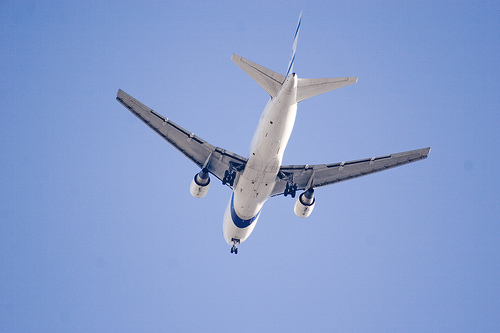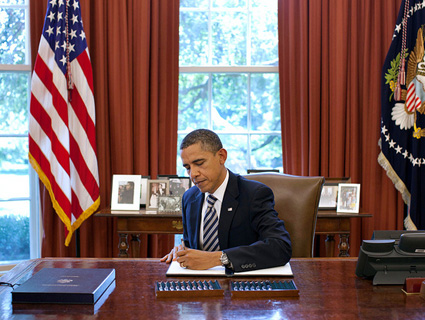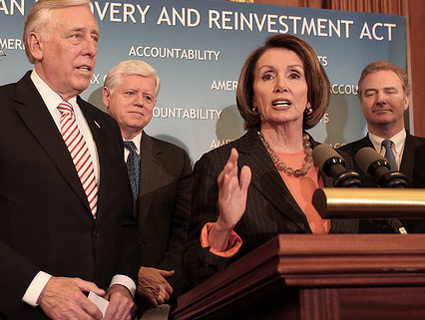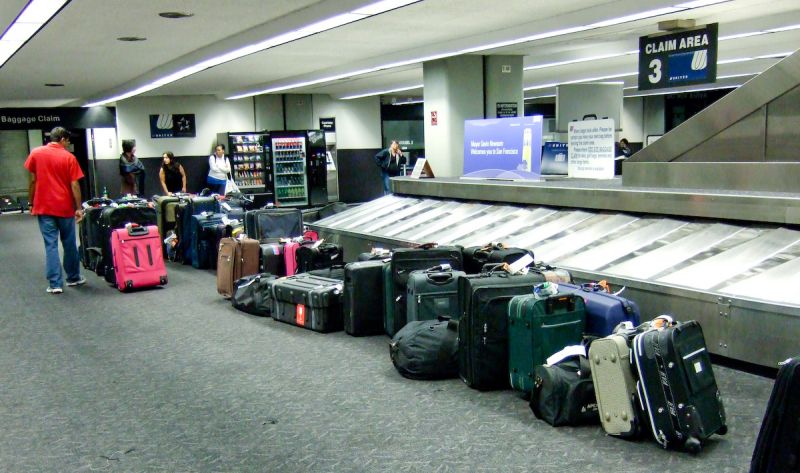
<a href="http://www.flickr.com/photos/shyb/63692776/sizes/m/in/photostream/">shyb</a>/Flickr
The noise generated by the debt ceiling debate has largely drowned out the news that the Federal Aviation Administration was crippled last week after Congress failed to reauthorize its funding. This has put 4,000 aviation workers on furlough, halted construction projects, and even stopped the FAA from collecting airline taxes.
But the shutdown isn’t hurting the airline industry. Instead of passing the savings from the missing taxes on to consumers, the airlines have decided to increase ticket prices and keep the money that would have gone to taxes for themselves—a windfall of up to $30 million a day. Here’s the Wall Street Journal:
The suspended levies include a 7.5% sales tax on domestic tickets, a $3.70-per-takeoff segment fee, a $16.30 (each way) international arrival and departure tax, and an $8.20 tax for flights linking the U.S. mainland to Alaska and Hawaii. Airlines must continue to collect security fees.
Airlines including US Airways Group Inc., AMR Corp.’s American Airlines, Southwest Airlines Co. and JetBlue Airways Corp. began Friday marking up their fares, although the fares didn’t appear to be higher because the totals didn’t change, says Rick Seaney, chief executive of tracker FareCompare.com.
Over the weekend, more carriers joined in, including Delta Air Lines Inc. and United Continental Holdings Inc., Mr. Seaney says. By and large, they raised fares 7.5% and added charges of $6 to $12 a ticket to account for the other fees.
So in addition to charging you to print a boarding pass, charging you for both checked and carry-on items, charging you for the convenience of using a credit card, and charging you for just booking a ticket to begin with, airlines have now figured out how to profit off the budget stalemate.







